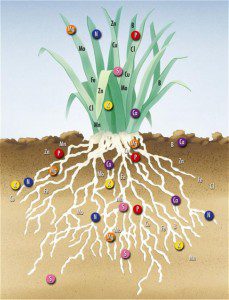To live and survive, humans require nutrients from their food to nourish their bodily functions. These substances assist human growth from the cellular level.

Essential nutrients are vital for good nutrition and for our bodies to function well. Nutrients are acquired from all food products but in varying amounts.
Nutrients are divided into two categories.
Macros and Micros for Essential Nutrients
Macronutrients or Macros
These are the essential substances the body requires in generous amounts, thus the “Macro” prefix.
These include carbohydrates, fats, and proteins. Everything edible contains variable amounts of each substance, except for calorie-free food. Macronutrients are considered “fuel” food because the body generally uses them as energy sources.
Carbohydrates consist of fiber, starch, and sugar. Starches and sugars provide the energy required by the body to function. Extra amounts of carbohydrates are converted to fats.
Fiber is the body’s “natural broom.” It gets rid of unhealthy cholesterol in the body.
Fats act as protection for cells. It makes up the cell membrane. Fats are also essential for the brain and nerves to function normally. Extra fat can be used as energy.
Proteins are the building blocks of tissues, building up muscles, organs, and systems. Extra amounts of protein, like carbohydrates, are also converted to fat.
Micronutrients or Micros
Micronutrients are the essential substances the body requires in small amounts, thus the “Micro” prefix.
These Nutrients include the 12 vitamins and 13 minerals needed by the body.
Vitamins are divided into fat-soluble and water-soluble groups. As the names imply, fat-soluble vitamins need fat to dissolve. Water-soluble vitamins need water to dissolve.
Minerals are divided into macro minerals, major minerals, micro minerals, and trace minerals. The body requires Macrominerals in slightly higher amounts than micro minerals, which the body needs in “trace” quantities.
Water-soluble Vitamins
These include Vitamin C and Vitamin B-Complex.
Vitamin C is required by the body to help form and repair tissues.
Vitamin B-Complex functions at the cellular level; for amino acid metabolism and cell division.
Deficiencies of these nutrients can be detrimental to human health. Likewise, higher than-normal dosages of these vitamins are also harmful.
Fat-soluble Vitamins
Vitamins A, D, E, and K. Vitamin A and E come from our food.
- The body makes vitamins D and K, which may also be acquired as supplements.
- Vitamin A is necessary for eye health.
- Vitamin E protects body tissues from damage.
- Vitamin D helps absorb calcium in the body.
- Vitamin K allows blood clotting to take place.
Macrominerals or Major Minerals
Which include calcium, magnesium, phosphorus, potassium, and sodium. These minerals are required for body fluid balance and healthy bones, muscles, and teeth.


Microminerals or Trace Minerals
Chromium, copper, fluoride, iodine, iron, selenium, and zinc.
Among these trace minerals, iodine, iron, and zinc are generally the most important.
Iodine is required to create thyroid hormones to keep the nervous system functioning correctly. Iron is used to make hemoglobin, which carries oxygen throughout the body.
Zinc is involved in skin integration and wound healing—deficiencies and a large dosage, whether major or trace, can be hazardous to your health.
Eating a balanced and healthy diet can ensure that the daily requirements of these Nutrients are acquired.
